Elizabeth Robinson

Professor Elizabeth Robinson is currently on research leave.
Elizabeth joined the Grantham Research Institute on Climate Change and the Environment, as its Director, in September 2021. Elizabeth is also the theme lead for the Building Sustainable Societies theme at the Global School of Sustainability at LSE.
Elizabeth is an environmental economist working primarily on climate change and health, with a focus on food security and undernutrition, heat and worker rights, and the design of policies and institutions to reduce climate change emissions, protect the environment, and improve the livelihoods of resource-dependent communities. From 2004-09 she was coordinating lead author for the International Assessment of Agricultural Science and Technology for Development, sub-Saharan Africa. She was on the UK Defra Economic Advisory Panel for five years; and in 2019-20, Specialist Advisor to the UK House of Lords Select Committee on Food, Poverty, Health, and Environment. From 2016-2024, she was Working Group 1 lead for the Lancet Countdown on Health and Climate Change, that addresses climate change impacts, exposures, and vulnerability. She is currently chair of the Economics Advisory Group for the Climate Change Committee’s fourth climate change risk assessment, CCRA4.
Background
Elizabeth has previously worked at University of Reading, Boston Consulting Group, Rockefeller Foundation, Natural Resources Institute, and Oxford University. She has a first-class degree in Engineering, Economics, and Management from Oxford University, and a PhD from Stanford University.
Research interests
- The design of environmental policy instruments
- Climate change and health
- Climate change and food security
Research
Research - 2025
This paper extends the existing individual decision-making framework of adapting to climate change by considering the effects of prior personal experience in shaping risk preferences Read more

Authored by 128 multidisciplinary experts worldwide, the 2025 report of the Lancet Countdown on health and climate change is the ninth—and most comprehensive— assessment of the links between climate change and health. Read more
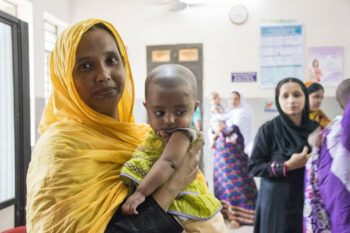
Motivated by Trinidad and Tobago's central government's prior hotel development plans, the authors of this paper employ a discrete choice experiment (DCE) to investigate residents' preferences for mangrove ecosystem services (ES) in the Bon Accord Lagoon and Buccoo Bay, Tobago. Read more

In this narrative review article, the authors ask why the setting of national park entry fees varies in practice, and link this back to the underlying theory, the empirical academic literature, and practical realities. Read more

This study quantifies the impacts of heat stress on the UK labour force, focusing on labour supply, labour productivity, the health of workers, and how adaptation is reducing the negative impacts. Read more

Research - 2024
The 2024 small island developing states (SIDS) report for the Lancet Countdown on Health and Climate Change expands on the global Lancet Countdown 2023 and 2024 reports to explore the unique contexts, geographies, vulnerabilities, and needs that shape the evolving links between health and climate change in small island developing states. Read more

The authors of this paper explore the extent to which heat stress affects the labour force and discuss the corresponding occupational health and economic impacts. Read more

The latest Lancet Countdown report reveals the health threats of climate change have reached record-breaking levels. Read more

The authors of this paper combine high-resolution climatic data with a dataset on infant and child mortality, wasting, and stunting, from more than a hundred countries, to estimate the effects of both gradual and acute climate change, focusing on drought and heatwaves, to plausibly attribute changing child health outcomes to historical climate change. Read more

This new report tracks 42 indicators highlighting the negative impacts of climate change on human health, the delayed climate action of European countries, and the missed opportunities to protect or improve health with health-responsive climate action. Read more
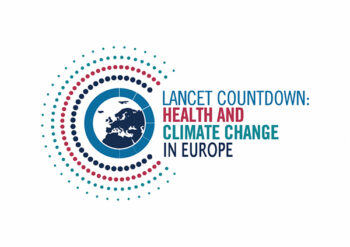
Building from the first report, the 2023 report of the Lancet Countdown Latin America, presents 34 indicators that track the relationship between health and climate change up to 2022, aiming at providing evidence to public decision-making with the purpose of improving the health and wellbeing of Latin American populations and reducing social inequities through climate actions focusing on health. Read more
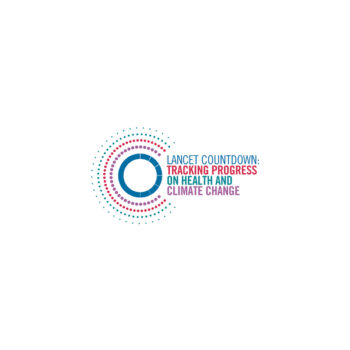
This comment article argues that in order to tackle climate change we need to integrate adaptation and mitigation in policy... Read more

The authors of this study observed elevation, forest patch and shade management gradients affecting smallholder coffee (Coffea arabica) yields in a ‘normal’ year versus the 2015/16 El Niño. Read more

Research - 2023
This report includes contributions from Shouro Dasgupta and Elizabeth Robinson which focus on the relationship between food insecurity and increasing heatwaves and droughts. Read more

In this opinion piece for the British Medical Journal Elizabeth Robinson argues that investing in public health policies that help... Read more

It is now clear that anthropogenic climate change is having a negative impact on human health. In this paper, we... Read more

The authors of this people propose a framework for the co-production of policy-relevant indicators and decision-support tools that track past, present, and future climate-induced disease risks across hazard, exposure, and vulnerability domains at the animal, human, and environmental interface. Read more

The authors of this paper investigate the reasons of failure and success of the fair compensation mechanism in the context of Large-Scale Land Acquisitions (LSLAs) Read more

By integrating climate and health information, climate services for health provide robust decision-support tools. The Lancet Countdown monitoring system uses global climate reanalyses products to track annual changes in a set of health-related outcomes. Read more

With improved understanding of the complex links between labour, health, and output, policies can be better designed to protect workers, especially vulnerable groups of workers, such as outdoor workers, and enhance economic output and economic growth. Read more

Research - 2022
Mirroring the Global Lancet Countdown, this report monitors the health effects of climate change and the health co-benefits of climate action in Europe. Read more

The Lancet Countdown is an international collaboration that independently monitors the health consequences of a changing climate. Publishing updated, new,... Read more

This paper examines how smallholder farmers are differentially affected by agricultural expansion in their communities and landscapes. Read more

The authors of this paper present a spatio-temporal analysis of land-cover change in Ghana’s Northern, Upper East, and Upper West provinces using Intensity Analysis on the periods from 1992 to 2003 and 2003 to 2015. Read more

This research in practice article is a reflective narrative documenting how we have developed CCIEVIs as a discrete set of quantifiable indicators that are updated annually to provide the most recent picture of climate change’s impacts on human health. Read more

The authors of this paper investigate the extent to which current changes in food insecurity can be plausibly attributed to climate change. They combine food insecurity data for 83 countries from the FAO food insecurity experience scale (FIES) with reanalysed climate data from ERA5-Land, and use a panel data regression with time-varying coefficients. Read more
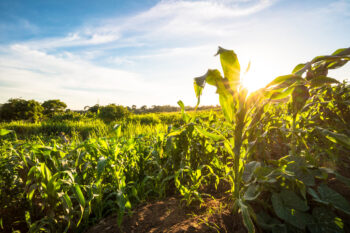
This is the first paper to track food insecurity and its determinants during the pandemic using multi-country and multi-wave evidence. Read more

Research - 2021
This paper provides micro-founded evidence needed to design policies that both improve agricultural yields in the context of a changing climate and target households’ abilities to cope with shocks that put upwards pressure on food prices. Read more

The Lancet Countdown is an international collaboration that independently monitors the health consequences of a changing climate. Publishing updated, new, and improved... Read more

The COVID-19 pandemic has affected food security across the world. As governments respond in different ways both with regards to... Read more

Policy
Policy - 2025
This report provides practical next steps for better protecting workers against the effects of high temperatures, informed by a 2,000-person survey and an expert roundtable. Read more

Policy - 2024
This is a response to an open consultation on proposed reforms to the National Planning Policy Framework and other changes to the planning system. Read more

This policy brief highlights priority areas for actionable advances in improving food security, nutrition and child health in Burkina Faso in the context of a changing climate. Read more

This policy brief examines the challenges Bangladesh faces and the trajectory of policy in this area, and considers how the agriculture sector can contribute to climate change mitigation. Read more

Policy - 2023
This policy brief explores how climate change is impacting the health of the population in Bangladesh through multiple pathways. Read more

This policy brief provides evidence to support policymakers in mobilising capital for a just, resilient transition to net zero, by highlighting the potential health co-benefits of addressing the risks from heat and air pollution in combination. Read more

This report consists of a submission to the call for evidence by the Environmental Audit Committee on heat resilience and sustainable cooling. Read more

This policy brief examines the physical and socioeconomic factors that make Bangladesh so vulnerable to flooding, especially in a changing climate, and how it might respond better in the future. Read more

The health and productivity of the workforce in Bangladesh are under increasing threat in a warming world. This policy brief considers how policymakers can better ensure workers are protected from extreme heat while pursuing sustainable development pathways and a just transition to a low-carbon economy. Read more
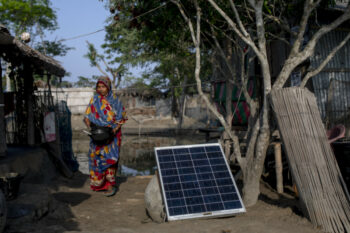
This report consists of written evidence to the UK Parliament Environmental Audit Committee’s inquiry on environmental change and food security. It states that UK’s Food Strategy of 2022 does not sufficiently factor climate risks into building resilient domestic food supply chains and suggests measures that the Government could take to increase food security while providing climate mitigation and health co-benefits. Read more

Policy - 2022
This paper explores health risks from climate change in a global context, setting out key risks and actions towards addressing these. Read more

This publication includes contributions from Shouro Dasgupta and Elizabeth Robinson who were indicator authors for heat and food insecurity. Read more
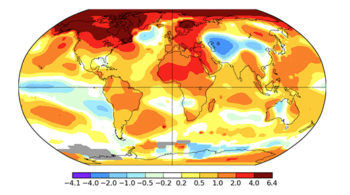
This report draws on knowledge developed for the European Climate and Health Observatory. It focuses on the impact high temperatures are having on the population, as well as another emerging threat: the spread of climate-sensitive infectious diseases. Read more

Events
Events - 2023
Events - 2022
News
News - 2025
On World Food Day, former master’s students of the Climate Food (In)security Lab at the Grantham Research Institute explain how food security is defined and highlight how climate change is already worsening our food and nutritional security. Read more

In this Real Zero podcast Professor Liz Robinson discusses the complex relationship between food systems, climate change, and inequality. Read more

Staff from the Institute have been chosen as lead and coordinating lead authors on two of the three Working Groups of the upcoming Seventh Assessment Report (AR7) of the Intergovernmental Panel on Climate Change (IPCC). Read more
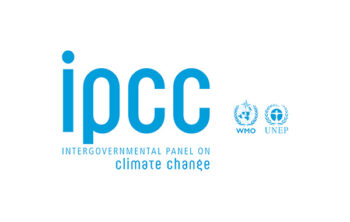
Financing the blue economy, specifically in relation to the protection and restoration of mangroves, a vital part of the Earth’s natural capital, could lead to broad health and livelihood benefits for all. Read more
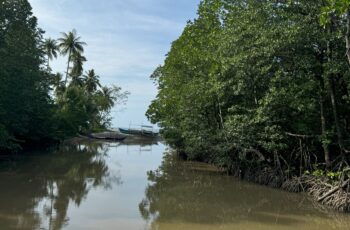
News - 2024
A collaborative research project involving LSE’s Grantham Research Institute and the Palawan Council for Sustainable Development Staff has received an... Read more

This feature article considers the some of the reasons for the spike in prices of certain food products during 2024.... Read more

This article discusses some of the issues that will at stake in the 2024 UK General Election. Read more
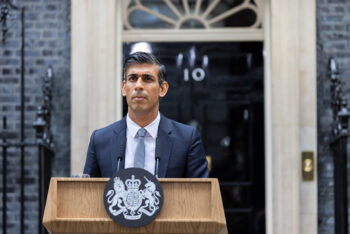
This BBC podcast focuses on the rising price of cocoa and considers how climate change may be a factor in... Read more

Professor Elizabeth Robinson, Director of the Grantham Research Institute on Climate Change and the Environment, has been announced as a... Read more
The open letter, co-signed by over 700 staff and students from 37 London academic institutions, including world-leading experts in urban... Read more

News - 2023
Today at COP28 is the first-ever dedicated Health Day in the international climate negotiations, which has the potential to highlight how climate change is harming our health, and the health co-benefits of tackling climate change. Lei Bian and Elizabeth J Z Robinson outline some of the key issues. Read more
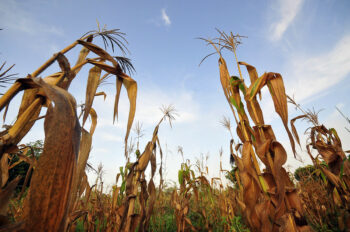
This article outlines the health impacts of climate change and includes quotes from Shouro Dasgupta and Elizabeth Robinson. Nature, 1... Read more

This article discusses the support that low-income countries need to help them adapt to climate change. The article includes quotes from Elizabeth Robinson. Read more

The Lancet Regional Health – Europe journal published a scientific paper on 7 August 2023 authored by a distinguished team... Read more
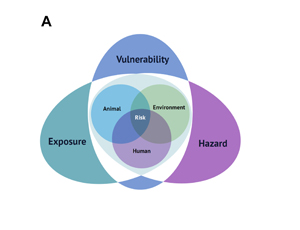
The health and productivity of the workforce in Bangladesh is under increasing threat in a warming world. In this commentary,... Read more
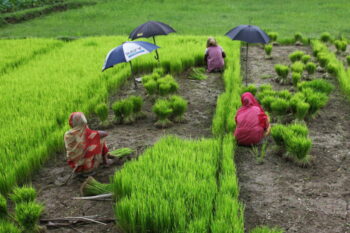
A mix of government initiatives, marketing and consumer choice can help cut emissions from China’s food system. Elizabeth Robinson is... Read more
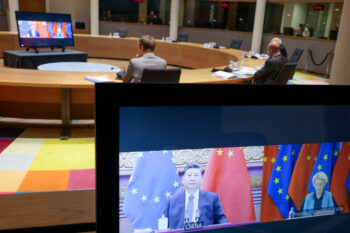
Grantham Research Institute report details how heat stress is undermining labour productivity in key markets around the world. The report... Read more

News - 2022
This news clip features a presentation on the Lancet Countdown 2022 Report launch in Bangladesh. Read more

Elizabeth Robinson and Shouro Dasgupta reflect on the impact climate change is already having on child health and nutrition in Egypt, the COP27 Presidency, and the extent to which child health outcomes will worsen if greater efforts are not made to limit global temperature increases. Read more
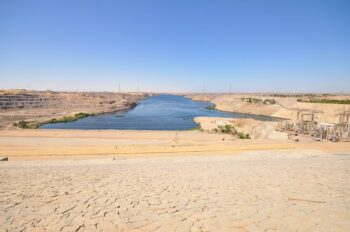
This news article reports on the Lancet’s annual Countdown on Health and Climate Change report. The article includes quotes from Professor Elizabeth Robinson who discusses the impacts of climate change in relation to food security. Read more

This article reports on a new study by the Lancet Countdown group which warns that continued reliance on fossil fuels will have major health related impacts. The article includes a quote from Professor Elizabeth Robinso who warns of the impact that climate change poses to global food supply chains. Read more

Elizabeth Robinson and Esin Serin consider how far we should be relying on technological fixes in the mission to reach net zero. Read more

News - 2021
Elizabeth Robinson discusses the COP26 climate summit in this BBC Radio 5 discussion programme. Starts approximately 2 hours in.Adrian Chiles,... Read more

In this BBC News interview Elizabeth Robinson outlines key priorities for the COP26 climate summit.BBC News, 1 November 2021 Read more


